Anh-Tuan Nguyen
MIRT: a simultaneous reconstruction and affine motion compensation technique for four dimensional computed tomography (4DCT)
Feb 07, 2024Abstract:In four-dimensional computed tomography (4DCT), 3D images of moving or deforming samples are reconstructed from a set of 2D projection images. Recent techniques for iterative motion-compensated reconstruction either necessitate a reference acquisition or alternate image reconstruction and motion estimation steps. In these methods, the motion estimation step involves the estimation of either complete deformation vector fields (DVFs) or a limited set of parameters corresponding to the affine motion, including rigid motion or scaling. The majority of these approaches rely on nested iterations, incurring significant computational expenses. Notably, despite the direct benefits of an analytical formulation and a substantial reduction in computational complexity, there has been no exploration into parameterizing DVFs for general affine motion in CT imaging. In this work, we propose the Motion-compensated Iterative Reconstruction Technique (MIRT)- an efficient iterative reconstruction scheme that combines image reconstruction and affine motion estimation in a single update step, based on the analytical gradients of the motion towards both the reconstruction and the affine motion parameters. When most of the state-of-the-art 4DCT methods have not attempted to be tested on real data, results from simulation and real experiments show that our method outperforms the state-of-the-art CT reconstruction with affine motion correction methods in computational feasibility and projection distance. In particular, this allows accurate reconstruction for a proper microscale diamond in the appearance of motion from the practically acquired projection radiographs, which leads to a novel application of 4DCT.
Federated Artificial Intelligence for Unified Credit Assessment
May 20, 2021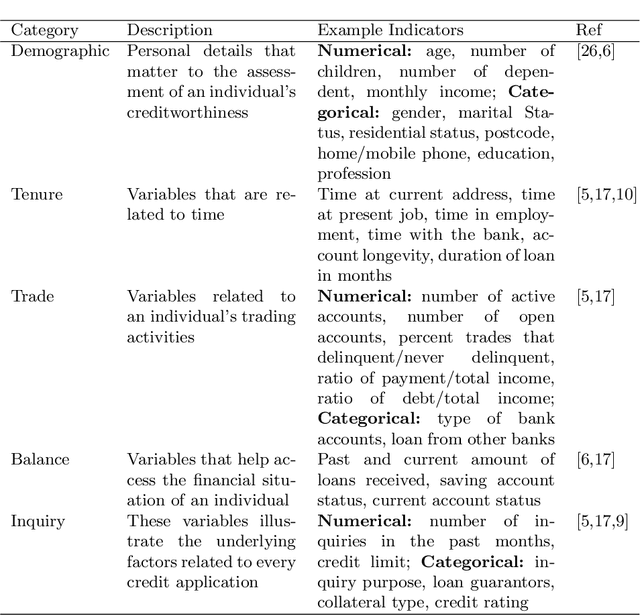
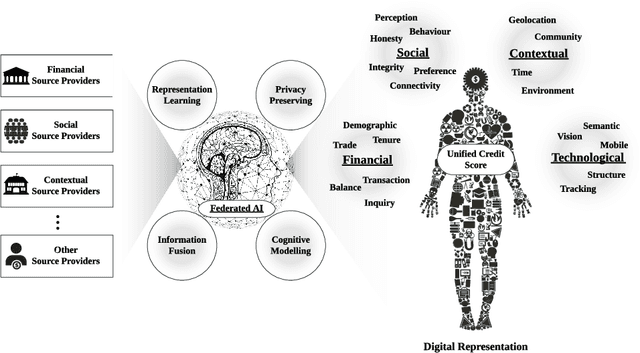
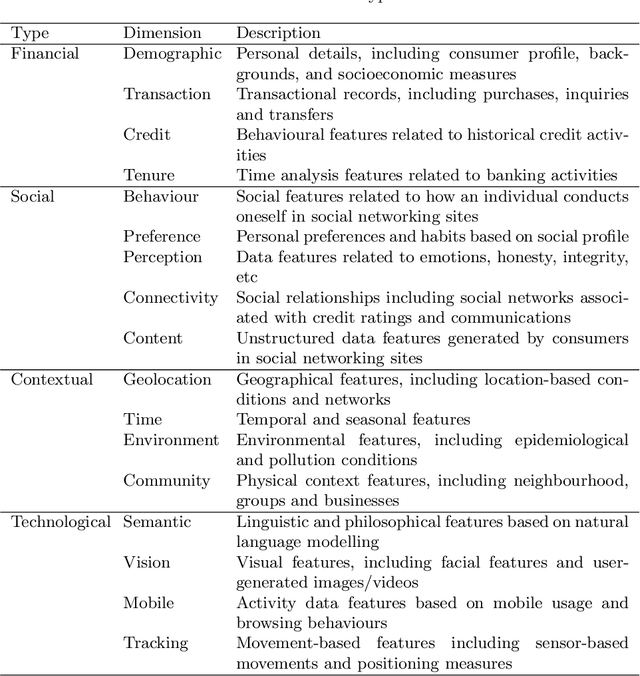
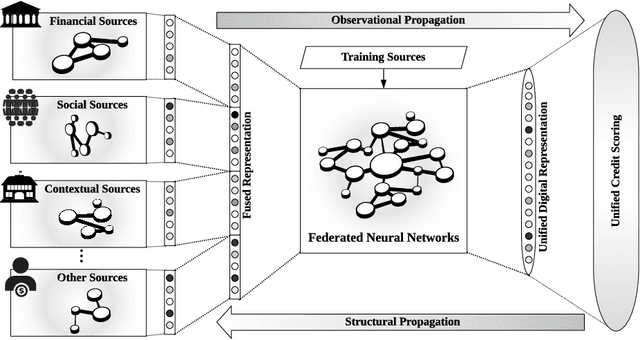
Abstract:With the rapid adoption of Internet technologies, digital footprints have become ubiquitous and versatile to revolutionise the financial industry in digital transformation. This paper takes initiatives to investigate a new paradigm of the unified credit assessment with the use of federated artificial intelligence. We conceptualised digital human representation which consists of social, contextual, financial and technological dimensions to assess the commercial creditworthiness and social reputation of both banked and unbanked individuals. A federated artificial intelligence platform is proposed with a comprehensive set of system design for efficient and effective credit scoring. The study considerably contributes to the cumulative development of financial intelligence and social computing. It also provides a number of implications for academic bodies, practitioners, and developers of financial technologies.
ReINTEL: A Multimodal Data Challenge for Responsible Information Identification on Social Network Sites
Dec 16, 2020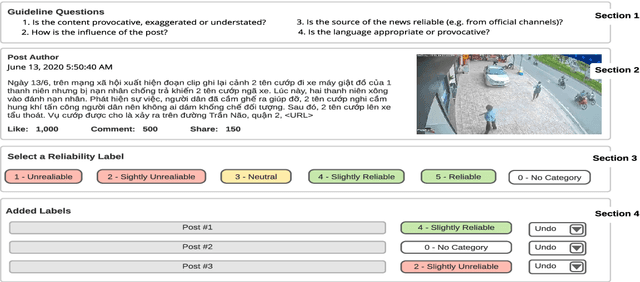
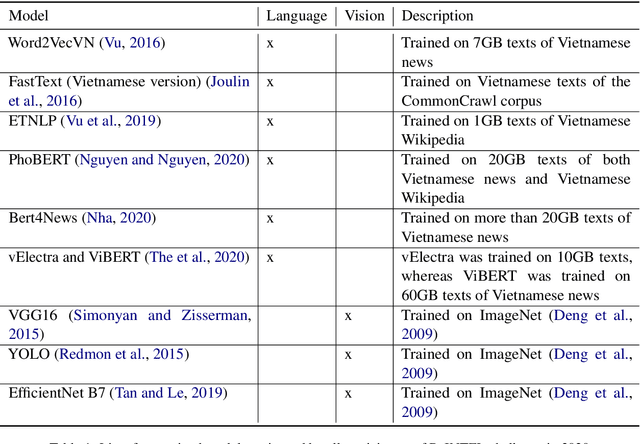
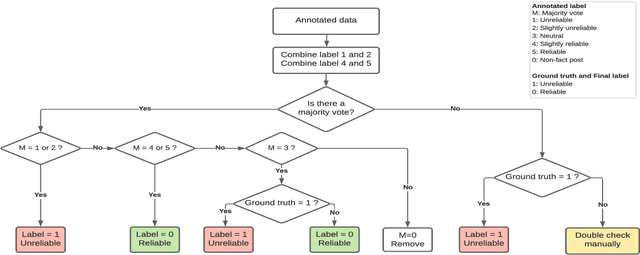
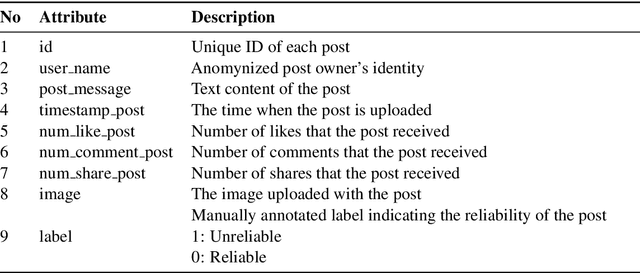
Abstract:This paper reports on the ReINTEL Shared Task for Responsible Information Identification on social network sites, which is hosted at the seventh annual workshop on Vietnamese Language and Speech Processing (VLSP 2020). Given a piece of news with respective textual, visual content and metadata, participants are required to classify whether the news is `reliable' or `unreliable'. In order to generate a fair benchmark, we introduce a novel human-annotated dataset of over 10,000 news collected from a social network in Vietnam. All models will be evaluated in terms of AUC-ROC score, a typical evaluation metric for classification. The competition was run on the Codalab platform. Within two months, the challenge has attracted over 60 participants and recorded nearly 1,000 submission entries.
 Add to Chrome
Add to Chrome Add to Firefox
Add to Firefox Add to Edge
Add to Edge